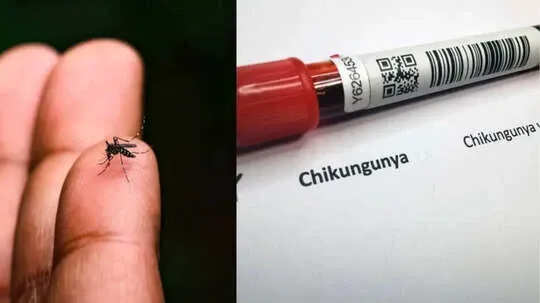Health officials said the Chikungunya - which often causes fever and joint pain - was detected in a patient on Long Island who started experiencing the symptoms after having traveled outside of the region.
According to doctors, the patient most likely got the virus from a mosquito bite - but it is not clear where that happened. The virus has not been detected in local mosquito pools and is not spread directly from one person to another.
The case confirmed in New York was the first locally acquired instance in the United States since 2015, meaning the person was infected without traveling elsewhere. Authorities said around ten years ago, a woman was infected in Texas. It is the first time that a locally acquired case has ever been detected in New York, the state Health Department said.
What is Chikungunya?
Chikungunya spreads to people through mosquito bites - specifically, through the Aedes aegypti mosquito and Aedes albopictus mosquito. The infection happens when a mosquito with the virus bites a person. Even though it does not spread from person to person through bodily contact or saliva, blood transmission may be possible.
The name chikungunya means "bent over" due to the joint pain the illness is known to cause. There is no medication to treat this condition, and the treatment only focuses on managing your symptoms. Most people recover from the illness in about a week, but some suffer from lasting joint pain.
Doctors advise those travelling to areas with active chikungunya transmission to be overly cautious about avoiding mosquito bites, especially for about one week after you have the virus. This is because an uninfected mosquito could bite you and become infected, further spreading the virus.
Signs and symptoms of chikungunya
According to experts, the symptoms of chikungunya develop mostly between two and seven days after you get bitten - even though some people get symptoms as early as two days or as long as 10 to 15 days after a mosquito bite.
Apart from high fever, a few other common symptoms of the chikungunya virus include:
- Severe headache
- Muscle and joint pain
- Swelling in your joints
- Rashes all over the body
- Fatigue and extreme tiredness
- Nausea and vomiting
Who is most likely to get chikungunya infection?
According to doctors, you are most likely to get the virus if you travel to a country that has a current outbreak or known transmissions. Before traveling, make sure to always check to see if you are at risk of getting chikungunya on your travels.
Pregnant women with the virus do not transmit the virus to the fetus. There is also no evidence that shows the virus spreads to an infant through breast milk. But, women who are pregnant and near their due date should avoid traveling to countries with known cases because it may be passed to their baby at delivery.
